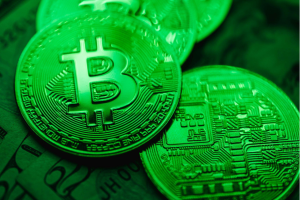OANDA vs GAIN Capital: Judge dismisses “without prejudice”
OANDA has now 60 days to file an amended complaint otherwise the court will turn the case into a permanent rejection.

The ongoing legal battle between OANDA and Gain Capital has had a recent development. The New Jersey district court has dismissed the patent infringement case brought by OANDA because the broker has not sought a preliminary injunction.
The Judge justified the “dismissal without prejudice” by stating OANDA’s legal team never explained why the broker has prolonged the delay, having waited 18 months from the first warning about a potential patent infringement made by Gain Capital.
OANDA has now 60 days to file an amended complaint otherwise the court will turn the case into a permanent rejection.
Gain Capital has requested to review the two patents it has been accused of infringing, but it was refused by the US Patent and Trademark Office tribunal. The denial can still be upturned.
OANDA vs GAIN Capital: a patent infringement lawsuit
OANDA brought the patent infringement case against GAIN Capital Holdings, Inc. in July 2020, but GAIN says the complaint contains almost no factual allegations specific to its products.
The patents at the heart of this lawsuit are U.S. Patent Nos. 7,146,336 (“the ’366 patent”) and 8,392,311 (“the ’311 patent”).
The ʼ336 Patent teaches, inter alia:
“In one aspect, the present invention comprises a system for trading currencies over a computer network. A preferred embodiment comprises: (a) a server front-end; (b) at least one database; (c) a transaction server; (d) a rate server; (e) a pricing engine; (f) an interest rate manager; (g) a trade manager; (h) a value at risk server; (i) a margin control manager; (j) a trading system monitor; and (k) a hedging engine. In another aspect, the present invention comprises methods for trading currency over a computer network. In another aspect, the present invention comprises software for currency trading over a computer network”.
The ’311 Patent teaches, among other things:
“In one aspect, the present invention comprises a system for trading currencies over a computer network. A preferred embodiment comprises: (a) a server front-end; (b) at least one database; (c) a transaction server; (d) a rate server; (e) a pricing engine; (f) an interest rate manager; (g) a trade manager; (h) a value at risk server; (i) a margin control manager; (j) a trading system monitor; and (k) a hedging engine. In another aspect, the present invention comprises methods for trading currency over a computer network. In another aspect, the present invention comprises software for currency trading over a computer network”.
According to OANDA, GAIN has infringed one or more claims of the ʼ336 Patent by making, using, selling, offering for sale, or selling products and/or services that meet each of the limitations of one or more claims of the ʼ336 Patent. More specifically, OANDA alleges that GAIN Capital Group, LLC has made, used, sold, and offered for sale infringing instrumentalities at https://forex.com, and GAIN Capital Holdings, Inc. has used those infringing instrumentalities, including the application programming interfaces (APIs), to operate automated infringing trading systems.
OANDA insists that the defendants have continued to operate their online trading platforms and systems in an infringing manner, despite being notified of its infringement by the plaintiff on at least one occasion by letter specifically referencing the ʼ336 Patent.
Furthermore, OANDA argues that GAIN has infringed one or more claims of the ʼ311 Patent by making, using, selling, offering for sale, or selling products and/or services that meet each of the limitations of one or more claims of the ʼ311 Patent. More specifically, OANDA claims that GAIN Capital Group, LLC has made, used, sold, and offered for sale infringing instrumentalities at https://forex.com, and GAIN Capital Holdings, Inc. has used those infringing instrumentalities, including the APIs, to operate automated infringing trading systems.
OANDA alleges that the defendants have continued to operate their online trading systems in an infringing manner, despite being notified of their infringement by the plaintiff on at least one occasion by letter specifically referencing the ʼ311 Patent.
On September 17, 2020, GAIN filed a motion to stay with the New Jersey District Court. In the supporting brief, GAIN explains that it seeks to stay the litigation pending resolution of GAIN’s petitions for covered business method (“CBM”) review filed on September 14, 2020, and September 15, 2020, before the U.S. Patent and Trademark Office Patent Trial and Appeal Board (PTAB).
Let’s recall that OANDA alleges that GAIN infringes two patents, U.S. Patent Nos. 7,146,336 (“the ’366 patent”) and 8,392,311 (“the ’311 patent”) (collectively, “Asserted Patents”). OANDA filed its Complaint on May 11, 2020. GAIN moved to dismiss for failure to state a claim on July 17, 2020, with the crux of the motion being that OANDA failed to identify any GAIN product of infringement and failed to describe how any GAIN product alleged infringes at least one claim of each patent. Thus, the accused products are not yet actually identified in this case, GAIN notes.
On September 14, 2020, and September 15, 2020, GAIN filed CBM petitions for each of the two Asserted Patents. GAIN’s pending petitions request that the PTAB invalidate every claim of the Asserted Patents.
According to GAIN’s petitions, the claims of the Asserted Patents are directed to the abstract idea of currency trading, which is an age-old business practice stretching back generations. While the platform for currency trading has shifted over time—from physical markets, to phones, to computers—the fundamental aspects of the trading process have endured. Regardless of the underlying platform, traders have long been able to interact with currency dealers to receive price quotes, negotiate rates, and make trades, much like any other financial transaction.
The claims of the Asserted Patents merely describe a standard currency trade being performed by generic computers, GAIN says. In the ’311 patent, a generic server sets and maintains exchange rates and then communicates those rates to a client, just as currency dealers and brokers have done for generations. The trader then submits a standard order – identifying the currency, the amount to be traded, and a requested price – using a generic client system. The generic server then accepts or rejects the order, checking the request price against the currently available price, and informs the trader if the trade is accepted. The claims thus broadly describe a conventional order-based currency trade, GAIN says.
In the ’336 patent, each system includes an off-the-shelf server front-end and database, as well as generic computer modules associated with basic currency trading functions: a “transaction server,” a “rate server,” and a “pricing engine.” Beyond these generic components, each claim recites an additional, but equally conventional currency trading feature that again reflects a longstanding currency trading practice, GAIN explains. The claims thus broadly describe a generic computer system that performs a fundamental economic practice recited at a high level of generality.
According to GAIN, the claims made in OANDA’s patents broadly describe conventional currency trading practices performed on a computer. Yet the mere use of a generic computer to replicate a longstanding business practice does not render an abstract idea eligible for a patent, GAIN says.
GAIN says that the facts weigh strongly in favor of immediately staying this litigation, which is only in its infancy, pending CBM review because: (1) no schedule has been set and no discovery has taken place; (2) a stay until completion of the CBM proceedings will simplify—and potentially wholly eliminate—the issues for trial; (3) OANDA will suffer no undue prejudice or tactical disadvantage from a stay because OANDA delayed in filing this litigation and elected to forgo seeking a preliminary injunction; (4) and a stay will reduce the burden of litigation on the parties and the Court.
The PTAB was expected to issue institution decisions for GAIN’s CBM petitions in March 2021, and a final determination on the merits is expected by March 2022.









